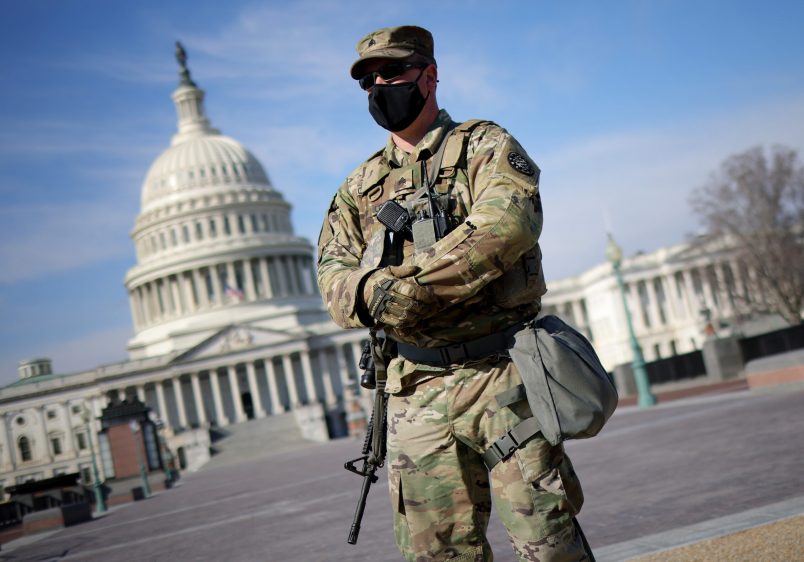President Biden on Wednesday signed into law a bill that would give the chief of the Capitol Police unilateral authority to request support from the National Guard. The bill easily passed both the House and Senate.
Prior to the President’s signing of the bill into law, the chief was required to get the consent of the Capitol Police Board to request assistance in the event of an emergency.
Lawmakers on both sides of the aisle have expressed their belief that the previous protocol for requesting support from federal law enforcement is what led to a delayed response when a mob of former President Trump’s supporters stormed the Capitol on Jan. 6.
Last March, Maj. Gen. William Walker, commanding general of the DC National Guard, detailed the hours-long delay in the Trump Defense Department’s approval of a request for the DC National guard to provide assistance on Jan. 6 while testifying before the Senate Homeland Security and Rules committees.
Although he had National Guard troops ready to go, Walker testified that the troops sat idly for hours before he was given authorization to send them out. Walker said that he could have gotten personnel into the Capitol building within 20 minutes of getting approval, but instead, support from the Guard did not arrive until the evening.
On Monday, House Speaker Nancy Pelosi (D-CA) announced that her office will hold a series of events next month to commemorate the one year anniversary of the deadly attack on the Capitol on Jan. 6. In a letter to the Democratic caucus on Monday, Pelosi said that despite the House not being in session during the first week of next month, some members “have expressed interest in being involved in commemoration activities.”
As part of a “full program” of events commemorating the Capitol insurrection, which will also be live-streamed, Pelosi asked Democrats to fully prepare for a “solemn observance” of Jan. 6.
Pelosi’s announcement followed White House press secretary Jen Psaki telling reporters that it plans to commemorate Jan. 6 as well.
“Jan. 6 was one of the darkest days in our democracy,” Psaki said. “It was a day when our nation’s capital was under attack and I think there’s no question you’ll see us commemorate that day.”



